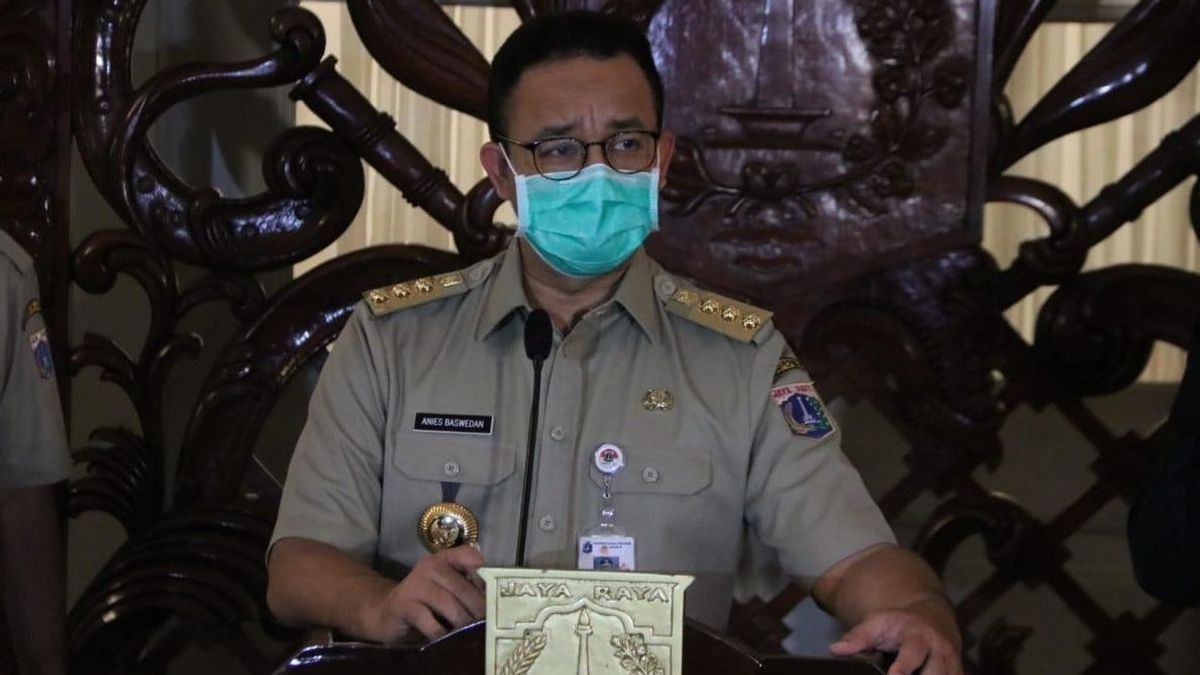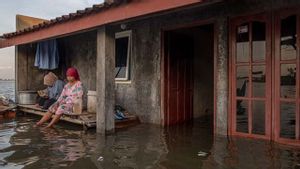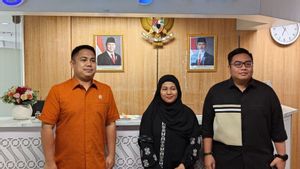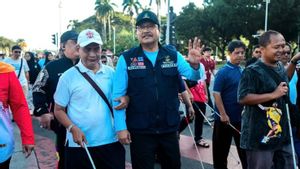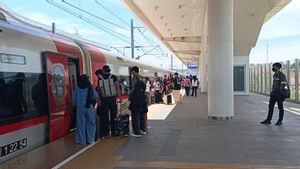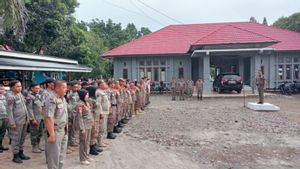JAKARTA - Since this morning, a number of motorcyclists in Jakarta have packed roads that were closed during the Java-Bali emergency PPKM period. The police found that there are still many non-essential companies in Jakarta that still require a number of their employees to work in offices.
Seeing this, DKI Jakarta Governor Anies Baswedan asked companies to comply with the emergency PPKM regulations, in which non-essential and critical business sectors are required to apply 100 percent of their employees to work from home.
"I feel sorry for the employees if the company's leadership continues to force them to enter, even though it is not an essential sector," said Anies at City Hall, Central Jakarta, Monday, July 5.
Anies said this policy was not only limited to clearing roads to make traffic quiet with closures everywhere. Anies said the emergency PPKM implemented was an effort to save residents.
Therefore, Anies asked employees who work outside the essential and critical sectors but are still required to work in the office to report to the DKI Provincial Government.
"For employees who work in the non-essential sector and the company forces them to work, report it through JAKI. You report it there. Let our team act later," he said.
Pangdam Jaya Major General Mulyo Aji also admitted that he was angry because there were still many non-essential and non-critical companies that did not comply with the rules for implementing emergency PPKM to suppress cases of the spread of COVID-19.
"Many companies in Jakarta who do not comply with the advice from the government from the 3rd to the 20th are working from home. So we in this field enforce the rules according to orders," said Mulyo Aji.
Polda Metro Jaya said it would investigate non-essential offices that still employ employees during emergency PPKM. The search was carried out because many people tried to enter Jakarta on the grounds of work.
"We are checking which offices are still not closed even though they are not critical and essential," said Traffic Director of Polda Metro Jaya Kombes Sambodo Purnomo Yogo to reporters, Monday, July 5.
Not only that, Sambodo will also comb through offices that do not implement the work from home (WHF) and work form office (WFO) policies in accordance with the specified capacity. Of course, if found violations will be given strict sanctions.
For information, the government requires 100 percent WFH for non-essential companies during emergency PPKM. Then, for essential sector offices, a maximum of 50 percent of work from office (WFO) employees are applied with a health protocol and for critical sectors a maximum of 100 percent of WFO employees are allowed with a health protocol.
The essential sectors include finance and banking, capital markets, payment systems, information and communication technology, non-COVID-19 quarantine handling hotels, and export-oriented industries.
The coverage of critical sectors is energy, health, security, logistics and transportation, food, beverage and supporting industries, petrochemicals, cement, national vital objects, disaster management, national strategic projects, construction, basic utilities (such as electricity and water), and fulfillment industries. basic daily needs of the community.
The English, Chinese, Japanese, Arabic, and French versions are automatically generated by the AI. So there may still be inaccuracies in translating, please always see Indonesian as our main language. (system supported by DigitalSiber.id)
